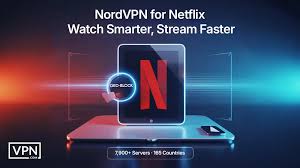In the realm of business, every penny counts, and where those pennies reside matters significantly. Selecting the right bank account for your business is more than just a financial decision—it’s a strategic move that can impact your bottom line and overall success. With numerous options available, knowing which features to prioritize can make all the difference. In this guide, we’ll explore the ten key features to look for when choosing a business bank account, ensuring that you make a sound investment in your financial future.
1. Online Banking Accessibility:
In today’s fast-paced digital world, the ability to manage your finances online is non-negotiable. Look for a business bank account that offers robust online banking capabilities, allowing you to access your account, view transactions, and initiate transfers from anywhere with an internet connection. Seamless online banking ensures that you have real-time visibility into your finances and the flexibility to manage them on your terms.
2. Low Fees and Charges:
When evaluating business bank accounts, pay close attention to the fee structure. High fees can eat into your profits and undermine your financial goals. Seek accounts with minimal monthly maintenance fees, transaction fees, and overdraft charges. Additionally, inquire about fee waivers or discounts based on account balances or transaction volumes to optimize cost-effectiveness.
3. Responsive Customer Support:
In times of financial need or uncertainty, having access to responsive customer support is invaluable. Prioritize banks that offer prompt and knowledgeable customer service via multiple channels, including phone, email, and live chat. Responsive support ensures that you can quickly resolve any issues or concerns that arise, allowing you to focus on running your business with confidence.
4. Integration with Financial Tools:
Efficient financial management requires seamless integration with other tools and software. Look for business bank accounts that integrate seamlessly with popular accounting software such as QuickBooks or Xero. This integration streamlines bookkeeping tasks, automates transaction categorization, and simplifies financial reporting, saving you time and reducing the risk of errors.
5. Overdraft Protection Options:
Avoiding overdrafts is essential to maintaining financial stability and avoiding unnecessary fees. Choose a bank account that offers overdraft protection options, such as overdraft lines of credit or automatic transfers from linked accounts. These features provide a safety net in case of emergencies and help prevent declined transactions, ensuring uninterrupted business operations.
6. Competitive Interest Rates:
While traditional business checking accounts may not offer high-interest rates, it’s still essential to seek competitive rates to maximize your earnings. Look for banks that offer interest-bearing accounts or higher interest rates on associated savings accounts. Even a slight increase in interest rates can contribute to significant savings over time, so compare rates carefully before making a decision.
7. Business-Specific Services:
Every business has unique financial needs that require specialized services and solutions. Choose a bank that offers business-specific services such as merchant services, payroll processing, business credit cards, and cash management solutions. These offerings are designed to streamline your business operations, improve cash flow, and support growth and expansion.
8. Robust Security Measures:
Protecting your business’s financial data and assets is paramount in today’s digital landscape. Ensure that the bank you choose employs robust security measures, including encryption technology, multi-factor authentication, and fraud monitoring. Additionally, inquire about liability policies and reimbursement programs in case of unauthorized transactions or fraudulent activity.
9. Convenient ATM Access:
Accessing your funds conveniently is essential for day-to-day business operations. Choose a bank with an extensive ATM network and convenient ATM locations to minimize fees and maximize accessibility. Additionally, look for banks that offer ATM fee reimbursement programs to offset costs associated with using out-of-network ATMs.
10. Flexibility and Scalability:
As your business grows and evolves, your banking needs may change. Select a bank that offers flexible account options and scalable services to accommodate your expanding requirements. Whether you’re a sole proprietor, small business, or corporation, choose a bank that can grow with you and adapt to your changing needs over time.
Conclusion:
Choosing the right business bank account is a critical decision that can significantly impact your financial success. By prioritizing the key features outlined above, you can ensure that your business banking experience is efficient, cost-effective, and tailored to your specific needs. Take the time to research and compare different banks and their offerings to find the perfect fit for your business. With the right bank account in place, you’ll have a solid foundation for managing your finances and achieving your business goals.



































